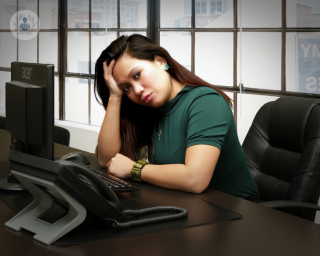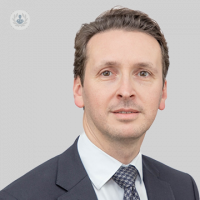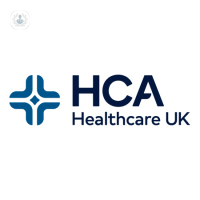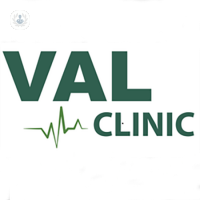What is work stress?
Stress is the body’s response to any kind of threat, whether that's because of real or imagined danger. The defences kick into either ‘fight or flight’ mode or as a ‘stress response’. In some circumstances, stress can help a person stay focused and alert, and even help them rise to meet challenges. In a work environment, it could keep an employee on their toes during a presentation, for example.
However, working under pressure too often with a lot of demands or in an intense atmosphere may mean that the adrenaline stops being helpful and can start causing serious damage to an employee’s health, mood, and productivity.

What symptoms do occupational stress present?
The main symptoms are consistent with other types of stress and can lead to both psychological and physical problems. Symptoms may affect the performance of the employee, with an overall feeling of lack of concentration and exhaustion. The mental effects of work stress are:
- feelings of concern
- insecurity – feeling doubtful and unable to cope
- lack of confidence – especially in making decisions
- fear of losing control and being wrong
- difficulty in studying – as well as thinking and concentrating
- anxiety and depression.
The physical symptoms of stress include:
- sweating
- exhaustion – feeling tired and lacking energy
- palpitations
- headaches
- muscle tension
- tachycardia – an abnormally high heart rate
- stomach discomfort – which in turn can lead to constipation or diarrhoea
- respiratory difficulties
- dizziness and nausea
What are the causes of work-related stress?
The causes of work stress can vary. Most reasons may include:
- Excessive workload - pressure on employees who are required to perform too many tasks.
- Lack of incentives - very monotonous, repetitive work which is unfulfilling.
- Unstable employment - the employee may be constantly afraid of losing their job.
- A high level of responsibility - where a small error carries serious consequences.
- Hazardous tasks or unhealthy conditions.
- Lack of support from peers, subordinates or superiors.
- Workplace harassment or mobbing by colleagues or superiors.
- Lack of recognition or appreciation for success, lack of positive incentives and rewards for effort.
What is the treatment for work-related stress?
There are not many medicines to treat the condition but there are changes that can help reduce the levels of work-related stress. This could be from changing the way an employee works, by having a chat with colleagues or the manager or consulting with the company’s HR department. It may also be worth searching for a new job position elsewhere. Seeking counselling or cognitive behavioural therapy (CBT) may work as a coping strategy.
To make the work environment more comfortable, it is recommended to develop good relationships with colleagues to create a network of support. Outside of work, lifestyle changes such as learning some relaxation techniques (breathing exercises or meditation) are tools to help manage stressful situations. Regular exercise reduces stress hormones and stimulates the release of endorphins, which are good-feeling hormones.
Work stress
Dr Dimple Devadas - Psychology
Created on: 08-12-2015
Updated on: 06-06-2023
Edited by: Jay Staniland
What is work stress?
Stress is the body’s response to any kind of threat, whether that's because of real or imagined danger. The defences kick into either ‘fight or flight’ mode or as a ‘stress response’. In some circumstances, stress can help a person stay focused and alert, and even help them rise to meet challenges. In a work environment, it could keep an employee on their toes during a presentation, for example.
However, working under pressure too often with a lot of demands or in an intense atmosphere may mean that the adrenaline stops being helpful and can start causing serious damage to an employee’s health, mood, and productivity.

What symptoms do occupational stress present?
The main symptoms are consistent with other types of stress and can lead to both psychological and physical problems. Symptoms may affect the performance of the employee, with an overall feeling of lack of concentration and exhaustion. The mental effects of work stress are:
- feelings of concern
- insecurity – feeling doubtful and unable to cope
- lack of confidence – especially in making decisions
- fear of losing control and being wrong
- difficulty in studying – as well as thinking and concentrating
- anxiety and depression.
The physical symptoms of stress include:
- sweating
- exhaustion – feeling tired and lacking energy
- palpitations
- headaches
- muscle tension
- tachycardia – an abnormally high heart rate
- stomach discomfort – which in turn can lead to constipation or diarrhoea
- respiratory difficulties
- dizziness and nausea
What are the causes of work-related stress?
The causes of work stress can vary. Most reasons may include:
- Excessive workload - pressure on employees who are required to perform too many tasks.
- Lack of incentives - very monotonous, repetitive work which is unfulfilling.
- Unstable employment - the employee may be constantly afraid of losing their job.
- A high level of responsibility - where a small error carries serious consequences.
- Hazardous tasks or unhealthy conditions.
- Lack of support from peers, subordinates or superiors.
- Workplace harassment or mobbing by colleagues or superiors.
- Lack of recognition or appreciation for success, lack of positive incentives and rewards for effort.
What is the treatment for work-related stress?
There are not many medicines to treat the condition but there are changes that can help reduce the levels of work-related stress. This could be from changing the way an employee works, by having a chat with colleagues or the manager or consulting with the company’s HR department. It may also be worth searching for a new job position elsewhere. Seeking counselling or cognitive behavioural therapy (CBT) may work as a coping strategy.
To make the work environment more comfortable, it is recommended to develop good relationships with colleagues to create a network of support. Outside of work, lifestyle changes such as learning some relaxation techniques (breathing exercises or meditation) are tools to help manage stressful situations. Regular exercise reduces stress hormones and stimulates the release of endorphins, which are good-feeling hormones.


How common is anxiety?
By Dr Edward Bloomfield
2025-01-28
Anxiety is a very common emotion. Whether it becomes a problem depends on how often and how strongly we feel it on a day to day basis. Dr Edward Bloomfield helps us to better understand anxiety, how it can manifest as physical symptoms and how it can be related to our genetic make-up. See more


How can high-achievers break the 'glass ceiling'?
By Dr Catherine Sykes
2025-01-28
Is the 'glass ceiling' affecting you? The invisible barriers that form the 'glass ceiling' create difficulties for several groups of people. It prevents high-achievers from moving up in their career in an organisation. Dr Sykes explains exactly what this is, how it impacts people and how to break it. See more


On the slippery slope to burnout? Climb your way back to optimum health
By Dr Catherine Sykes
2025-01-28
Our mental health stays with us wherever we go, including at work. Burnout in our places of employment is becoming a condition that's increasingly reported and some people are beginning to recognise how overwhelmed they feel in their jobs. Leading psychologist and coach Dr Catherine Sykes is here to offer her expertise on work-related burnout in this informative article. See more


Psychological safety in the workplace: how does this affect daily life?
By Dr Catherine Sykes
2025-01-28
Psychological safety refers to feeling validated, respected and safe to speak up about issues which are affecting us, not only in the workplace but in daily life. Leading chartered psychologist Dr Catherine Sykes explains how this concept applies to our daily lives. See more
Experts in Work stress
-
Dr Justin Sauer
PsychiatryExpert in:
- Bipolar disorder
- Stress
- Work stress
- Depression
- Anxiety
- Dementia
-
Dr Catherine Sykes
PsychologyExpert in:
- Anxiety
- Depression
- Work stress
- Burnout
- Medically unexplained symptoms
- Adult ADHD
-
Dr Nicky Kimber-Rogal
PsychologyExpert in:
- Anxiety
- Psychotherapy
- Work stress
- Relationship counselling
- Cognitive behavioural therapies
- Cognitive analytic therapy
-
Dr Jessica Valentine
PsychologyExpert in:
- Work stress
- Anxiety
- ADHD
- Post-traumatic stress disorder (PTSD)
- Building confidence
- Medicolegal
-
Mrs Cornelia De La Fosse
PsychologyExpert in:
- Post-traumatic stress disorder (PTSD)
- Cognitive behavioural therapies
- Low self-esteem
- Anxiety
- Depression
- Work stress
- See all

Barnes Private Practice
Barnes Private Practice
Barnes Private Practice, 22 Castelnau, London, SW13 9RU
No existe teléfono en el centro.
By using the telephone number provided by TOP DOCTORS, you automatically agree to let us use your phone number for statistical and commercial purposes. For further information, read our Privacy Policy
Top Doctors

London International Patient Services (LIPS)
London International Patient Services (LIPS)
5 Devonshire Place, W1G 6HL
No existe teléfono en el centro.
By using the telephone number provided by TOP DOCTORS, you automatically agree to let us use your phone number for statistical and commercial purposes. For further information, read our Privacy Policy
Top Doctors

VAL Clinic
VAL Clinic
39 Frederick Rd, Rainham, RM13 8NJ
No existe teléfono en el centro.
By using the telephone number provided by TOP DOCTORS, you automatically agree to let us use your phone number for statistical and commercial purposes. For further information, read our Privacy Policy
Top Doctors
-
Barnes Private Practice
Barnes Private Practice, 22 Castelnau, London, SW13 9RU, Central LondonExpert in:
- Cardiology
- Dermatology
- Cosmetic gynaecology
- Obstetrics and Gynaecology
- Psychology
- Psychiatry
-
London International Patient Services (LIPS)
5 Devonshire Place, W1G 6HL, W1G Marylebone LondonExpert in:
- Orthopaedic spinal surgery
- Plastic surgery, reconstructive and aesthetics
- Hand and wrist
- Otolaryngology
- Foot and ankle
- Knee
-
VAL Clinic
39 Frederick Rd, Rainham, RM13 8NJ, East LondonExpert in:
- Cardiology
- Bariatric Surgery
- Orthopaedic surgery
- Dermatology
- Obstetrics and Gynaecology
- Internal medicine
- See all
- Most viewed diseases, medical tests, and treatments
- Respiratory infection
- Menopause support
- Alzheimer's disease
- Cluster headaches
- Tension headache
- Chronic headache
- Migraine
- Maternal mental health
- Joint pain
- Nutrition








